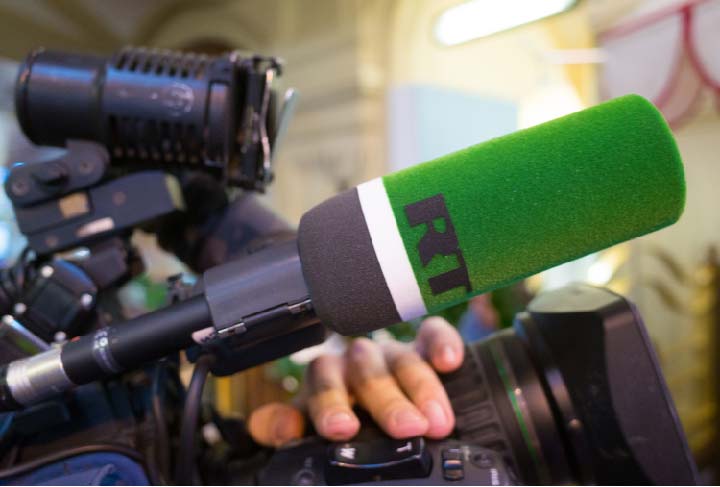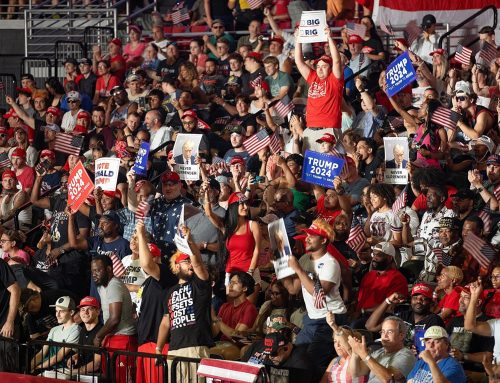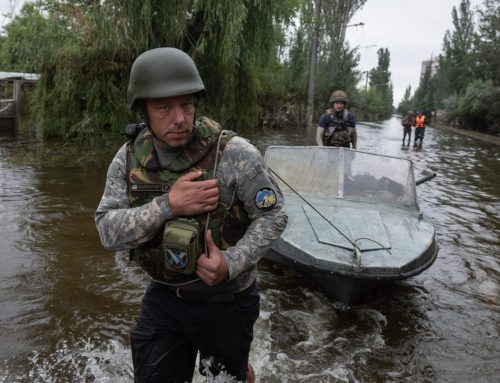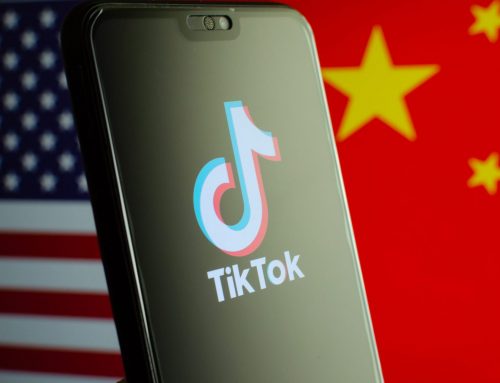Russian state media predictably used the Facebook Oversight Board’s ruling to uphold the company’s previous decision to ban former President Trump from the platform to advance its usual Big Tech censorship narrative and amplify Trump’s anti-Big Tech talking points. They also slammed Twitter’s new offensive tweet warnings as a similar form of Big Tech overreach. As we noted in a January blogpost and recent tweet thread, these efforts, long a staple of Russian messaging, have hit a crescendo in the wake of the Capitol riots. Last week also saw an intense focus on protests in Latin America. As is frequently the case with protests that they choose to cover, Russian state media highlighted scenes of chaos and examples of police brutality during the demonstrations in Colombia. Notably, they at times portrayed the United States as having double standards in its human rights responses based on its geopolitical relationships and highlighted the ties between Colombian President Iván Duque’s government and the United States/NATO. As usual, Russian diplomats and state media marked World War II Victory Day (May 9) and the lead up to it with a spate of messaging largely emphasizing general celebratory themes and the Soviet Union’s role in the war. Russian President Putin’s speech, as usual, decried alleged efforts to “rewrite history,” a theme also taken up by some state media, while Russian embassies in the Baltics highlighted “without commentary” flowers placed at Soviet monuments that have been the subject of controversy.
Last week’s G7 gathering was met with disdain and belittlement from Chinese diplomats and state media on Twitter. There was predictable animosity at the group’s joint statement accusing China of “bullying the weak.” Emblematic of the general hostility toward the G7, the Global Times promoted an illustration clothing the representatives of the group’s seven members in colonial outfits, implicitly tying the democracies’ current stance toward the Chinese government to their past colonial wrongdoings. Chinese diplomats in Pakistan and South Africa shared the article and the illustration. Besides historical complaints, Chinese diplomats also attacked G7 governments for being incompetent in the face of the coronavirus and for not doing enough to help developing countries fight the pandemic. Chinese state media also highlighted the fact that two of India’s guest delegates had tested positive at the meeting. The Chinese propaganda apparatus was also on the defensive, particularly in the second half of last week, over reports that a Chinese rocket’s uncontrolled descent into the atmosphere risked causing damage on the ground. Both Chinese state media and diplomats, including the always bombastic editor-in-chief of the Global Times and the Chinese ambassador to Trinidad and Tobago, accused U.S. media of malignly influencing global public opinion on the issue. Despite their defiant tone, however, there was visible relief on May 9 as the rocket landed safely in the Indian Ocean. A key phrase search for “rocket” shows that mentions of the term shot up on May 9 as Chinese representatives in Egypt, at the ASEAN, in Lebanon, and in Jordan (among others) noted that the rocket had safely crashed. For the first time in months, Xinjiang was not the most mentioned topic in tweets by Chinese officials and diplomats last week. Tweets and state media articles about Xinjiang focused on the same narratives that Chinese authorities have been promoting in recent months: Chinese policies have stopped terrorism in the region, while genocide accusations are lies spread by hypocritical Westerners trying to contain China. Finally, China Daily’s EU bureau chief, Chen Weihua, and the Global Times went after environmental activist Greta Thunberg after the activist allegedly “targeted China on its annual emissions but made no comments on Japan’s decision to dump nuclear-contaminated water.” This continues a pattern of Chen Weihua attempting to bate the young Swede into a Twitter spat.
The increasing conflict between Israelis and Palestinians, along with Al Quds Day, meant that the conflict dominated Tehran-linked Twitter last week, with many of the top tweets coming from the supreme leader. Most of the top ten key phrases were related to the conflict. One short but popular tweet from Khamenei read simply, “Today, the balance of power has shifted to benefit the world of Islam #PalestineWillBeFree.” Another of his tweets dismissed Israel as a #TerroristCamp. Fallout continued from leaks of an interview Foreign Minister Zarif recorded that was not intended to be aired publicly, with hardliners like Rasaee blasting him over criticism of Soleimani’s foreign policy influence and Russian involvement in the country. Zarif himself announced that he will not be running for president next month as some had expected, while the Iranian parliament announced that it has opened an investigation into the leaks. Despite the controversy over the Zarif leaks, the Iranian press was undeterred from reporting on a leaked tape of Israeli politician Ayelet Shaked harshly denouncing Israeli Prime Minister Netanyahu and his wife as tyrants.
The views expressed in GMF publications and commentary are the views of the author alone.








